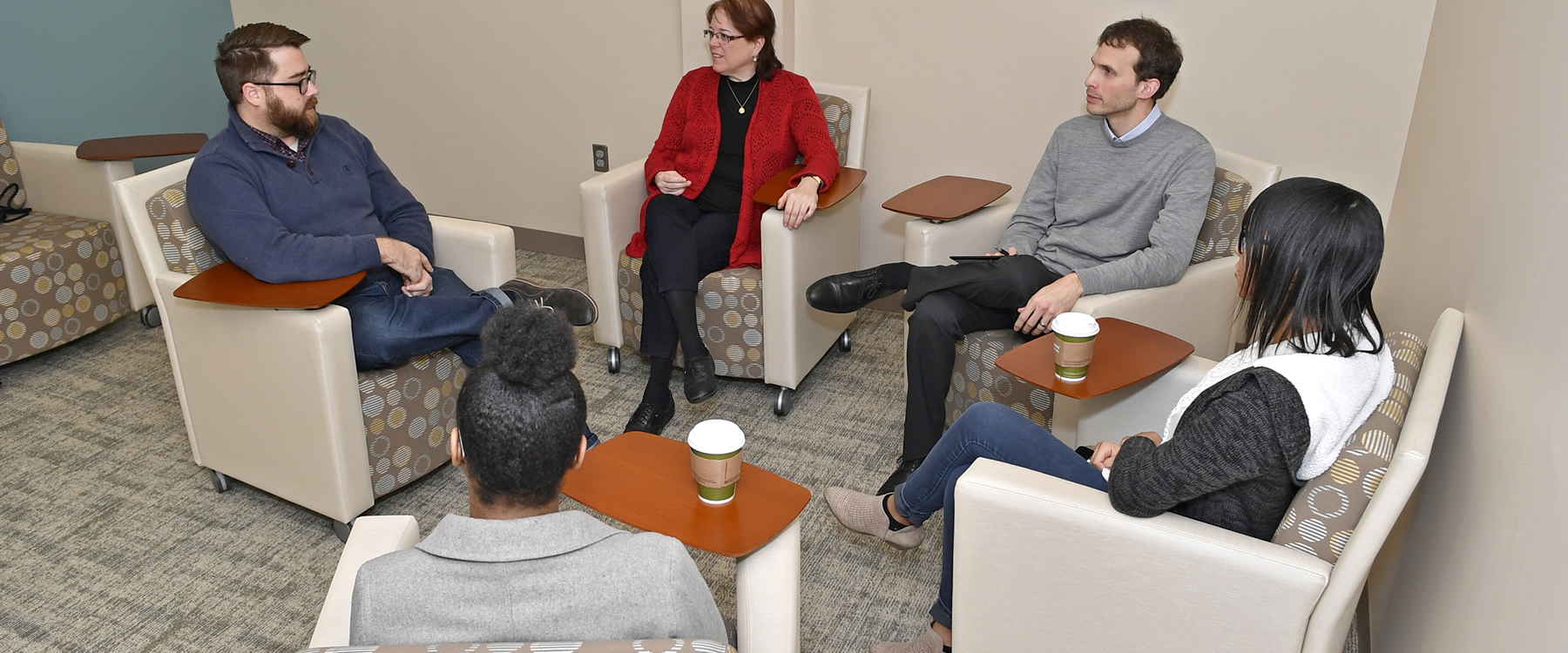
Nationally, college students’ mental health is a topic of concern, especially as the coronavirus pandemic remains prevalent in the United States and abroad. At UNC Charlotte, student leaders and campus administrators have been proactive in their response to the increasing demand for mental health services.
An $88 increase in health services fees, advocated by the Student Government Association in the spring and effective this fall, benefits the Center for Counseling and Psychological Services (CAPS), the Student Health Center and the Center for Wellness Promotion. CAPS, in particular, is using a portion of this additional fee to boost its staff; two new clinicians joined in August.
“Accessible mental health care is more important than ever, especially after our student body's hardships over the past few years,” wrote SGA President Dick Beekman in a Niner Times op-ed.
Support services to meet increased demands
For fall 2021, student requests for mental health services have increased 17%, according to CAPS officials.
Paula Keeton, Ph.D., director of CAPS, said, “We continue to offer same-day appointments and after-hours phone consultation for students who are in crisis and need to speak to a counselor quickly. CAPS also offers ‘Let’s Talk,’ a weekly space for students that provides brief, drop-in and confidential problem-solving consultations with a CAPS team member. No appointment is necessary, which enables us to provide even greater accessibility to students.”
CAPS, housed adjacent to the Student Health Center in the Christine F. Price Center for Counseling and Psychological Services, employs 19 counselors plus three full-time graduate interns and one full-time postdoctoral fellow for the University’s 30,000-plus students.
Group counseling sessions, facilitated by CAPS, foster students’ sense of belongingness and connection. There are 14 groups, including special offerings to support individuals disproportionately affected by the pandemic: communities of color and the LGBTQ+ community.
Additionally, workshops offered through CAPS help college students build specific skills to address concerns that college students may experience. Students also can schedule individual and relationship counseling, and the center offers a range of crisis assistance resources.
Roger Suclupe, a licensed clinical social worker and a faculty member in the School of Social Work, encourages students to seek mental health support. “There is nothing wrong with saying, ‘I need help.’ You are not alone, there are people out there who feel similar to how you're feeling. It's okay not to feel okay, and it's okay to say, ‘I’m not okay.’”
Grant expands suicide prevention training
In August, at the start of the fall semester, CAPS trained 156 faculty and staff members to support student mental health needs as the campus resumed operations amidst COVID-19. The center also held three workshops for students to offer strategies designed to promote positive mental health as the semester commenced.
Through a three-year Garrett Lee Smith Campus Suicide Prevention grant from the Substance Abuse and Mental Health Services Administration (SAMSA), the University is expanding “Question, Persuade and Refer” (QPR) training for suicide prevention. The grant is enabling the University to offer:
- A novel bystander intervention program for problematic drinking
- A needs assessment to start Niner Resilient, a pilot program that will offer a workshop for graduate and international students to foster empowerment and social connectedness
Rob Cramer, associate professor and Irwin Belk Distinguished Scholar in Health Research in the Department of Public Health Sciences, co-wrote the SAMSA grant as its primary investigator. A leading national authority on suicide, Cramer said, “This grant offers a unique opportunity to work with a team of professionals all over campus to leverage our collective expertise to benefit UNC Charlotte and to generate knowledge and programs that will contribute to the broader science of suicide prevention.”
Related:
Suicide prevention during COVID-19
UNC Charlotte receives grant to develop suicide prevention programs